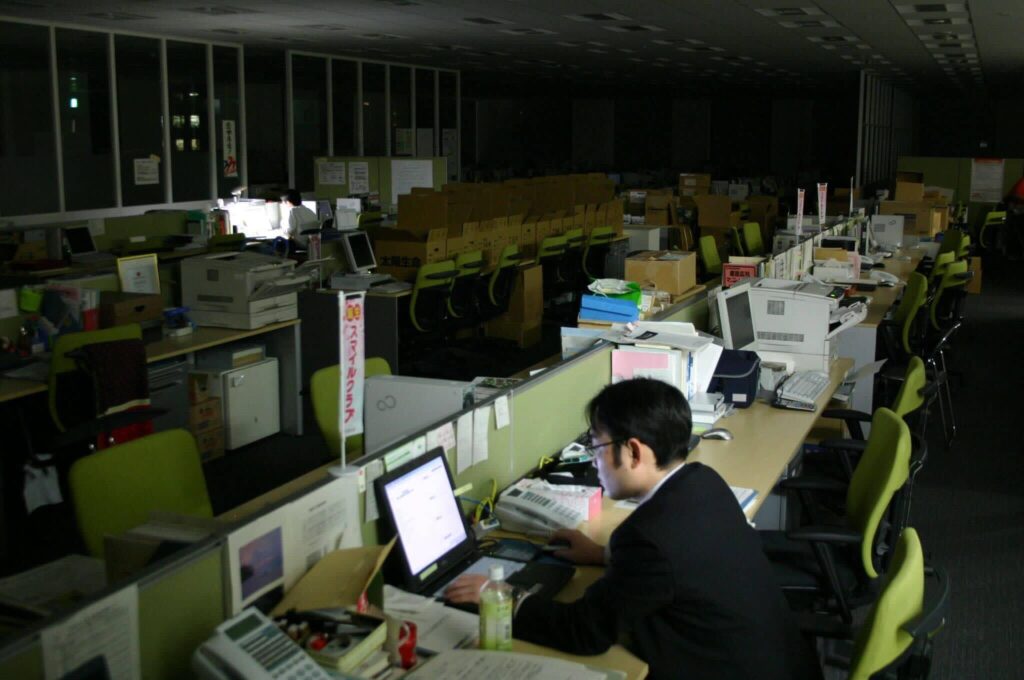The Japanese Model of a Good Employee
Written by Erich Ahorner

While I was mostly working in Europe in my corporate career, the majority of managers I was working with were Japanese. In the beginning I knew very little about what their expectations in terms of how an ideal employee should act in the organization.
But over the years I developed a better understanding of the best practices on how to be recognized in Japanese corporate environments.
A Japanese manager's idea of a model employee is determined by the Japanese lifetime employment system which is dominated by a process that still tends to focus on noticing mistakes rather than recognizing positive performance to move up on the corporate ladder. The qualities that enable one to succeed in such a system often mean to primarily make sure not to make any big mistakes. The result is an aversion to taking risks among Japanese middle managers.
The different business culture and free labor market system in the Western world leads many Westerners to have completely different approaches to work.
The following characteristics of a good employee in the Japanese system can clash with standard employee behavior in many western countries.
Predictable
The Japanese employee is predictable and dependable. He will work with little complaint no matter how his company treats him, since the limited options on the external labor market and other socioeconomic factors in Japan leave him often with relatively few attractive opportunities.
Japanese managers therefore are not very concerned about whether or not their employees will become dissatisfied and leave.
Ensuring employee satisfaction and preventing turnover are foreign concepts to a Japanese manager who is working under these traditional assumptions.
When a Japanese employee quits, rather than being taken as a sign of a problem with the company, it is shrugged off as a problem with the individual employee (an inability to get along with coworkers, the personality of a perpetual malcontent, a lack of loyalty, or selfish job-hopping. Due to this way of thinking, Japanese managers often view the job
mobility in other countries quite negatively. Because their system does not encourage them
to search for job satisfaction or to switch jobs in order to get ahead, Japanese will tend to assume that Americans are mercenaries who are only concerned with making more money.
Flexible
Because the Japanese employee has committed himself to staying with the same firm, the company views him as a flexible resource. He can be moved to different tasks in accordance with changing business needs.
For example, if the company decides to de-emphasize activity A and expand activity B, it will simply switch personnel from A to B, even if they are completely unrelated tasks. Similarly, employees who are asked to transfer abroad will virtually never refuse, even if it disrupts their personal
lives. It is assumed that each employee will put corporate objectives above personal desires.
To the Japanese company accustomed to managing the careers of its employees as it pleases, Westerners, with their own well-developed goals and aspirations, may seem selfish, self-centered,
and uncooperative.
Undemanding
The lifetime employment system is linked with the concept of long-term revards. At the beginning of his career, even a high-level performer will not make much more than his contemporaries and may not move up noticeably faster. The system rewards good performance over the long run, in terms of decades, not years. In this context, it is pointless for the Japanese employee to be demanding in terms of salary or special treatment. It is also not necessary for the Japanese employee to call direct attention to his contributions as an individual. He is comfortable with
shared responsibility and shared credit - his efforts and contributions will be recognized in the fullness of time. Therefore, in the eyes of a Japanese manager, the Western style desire for immediate recognition of individual accomplishments and willingness to openly ask for increased compensation may seem egocentric and uncultivated.
If you want to learn more about Doing Business with Japan check out the Interviews and other resources on the Youtube channel here.

Erich Ahorner
Erich Ahorner helps people enter the Japanese market and grow their businesses. He is an expert at helping people with market entry using online and offline methods and trying to break down necessary steps to make things simple to understand. If you're interested in growing your business or entering a new market to and increase sales then definitely reach out and request a free strategy session today.
Menu
